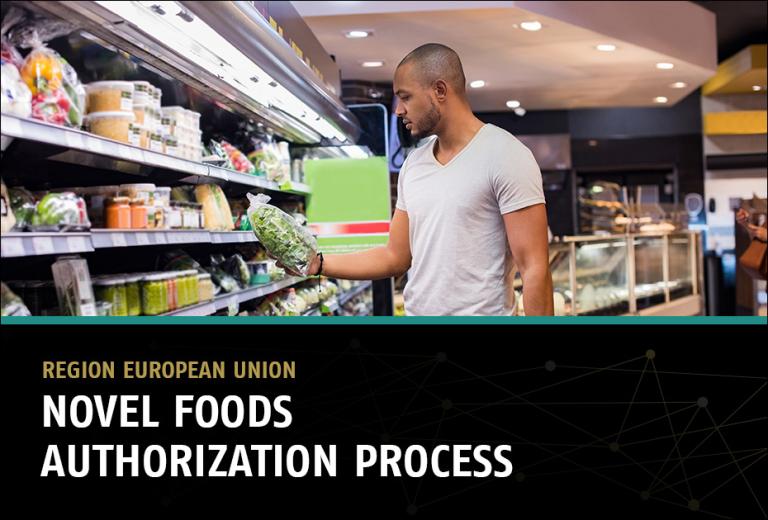Novel Foods Authorization Process in the EU
The recent desire for companies to meet sustainability goals combined with the high demand for more eco-friendly products in the EU, requires the use of novel technologies with respect to the manufacturing of foods, and bringing on the EU market foods that have not been consumed before in the EU to a significant degree. These type of foods fall under the definition of ‘Novel Foods’ for the EU market.
The European Commission has implemented Regulation (EU) No 2015/2283 on Novel Foods which came into force as of 01 January 2018, providing the regulatory framework for the placing of novel foods on the market within the EU. This regulation provides clear indications on the pathway of obtaining an EU authorization on such Novel Foods. As per this EU Regulation, Novel Foods are foods that have not been consumed to a significant degree by humans in the EU before 15 May 1997. These include newly developed, innovative foods produced using new technologies and production processes. Foods that have been traditionally eaten outside the EU, called ‘traditional foods from a third country’, have special requirements under this Novel Foods Regulation.
With respect to novel technologies, new biotechnology manufacturing processes are used currently to produce Novel Foods. An example of this is foods consisting of, isolated from, or produced from animals or their parts, except for animals obtained by traditional breeding practices which have been used for food production within the European Union before 15 May 1997. Examples of the Novel Foods include insects, seaweed, single cells organisms, fungi, materials isolated from plants and minerals and others.
It is certain that due to the high rate of technological development in manufacturing food and the recognition of new species as foods, many foods will be considered as Novel Foods in the European Union. In order to ensure safe use of Novel Foods by the EC, Novel Foods manufacturers are required to obtain an EU authorisation prior to marketing these foods.
knoell can help you in the preparation and submission of a Novel Food dossier, and can also assist you in determining if your product can be considered as a Novel Food in the EU. In the preparation process of an authorization dossier, knoell experts will identify the potential gaps, advise the next steps needed to obtain compliance and will be involved in the process of pre-notification to EFSA of any new study to be carried out in connection to such an EU authorization dossier on the Novel Food. The preparation of such a Novel Food authorization dossier is in direct connection with the new Transparency Regulation in the EU, i.e., Regulation (EU) No 2019/13181 applicable in the EU as per 27 March 2021.
For regulation support on Novel Foods, please contact knoell FFCM team at or get more information on our Food Products page.


